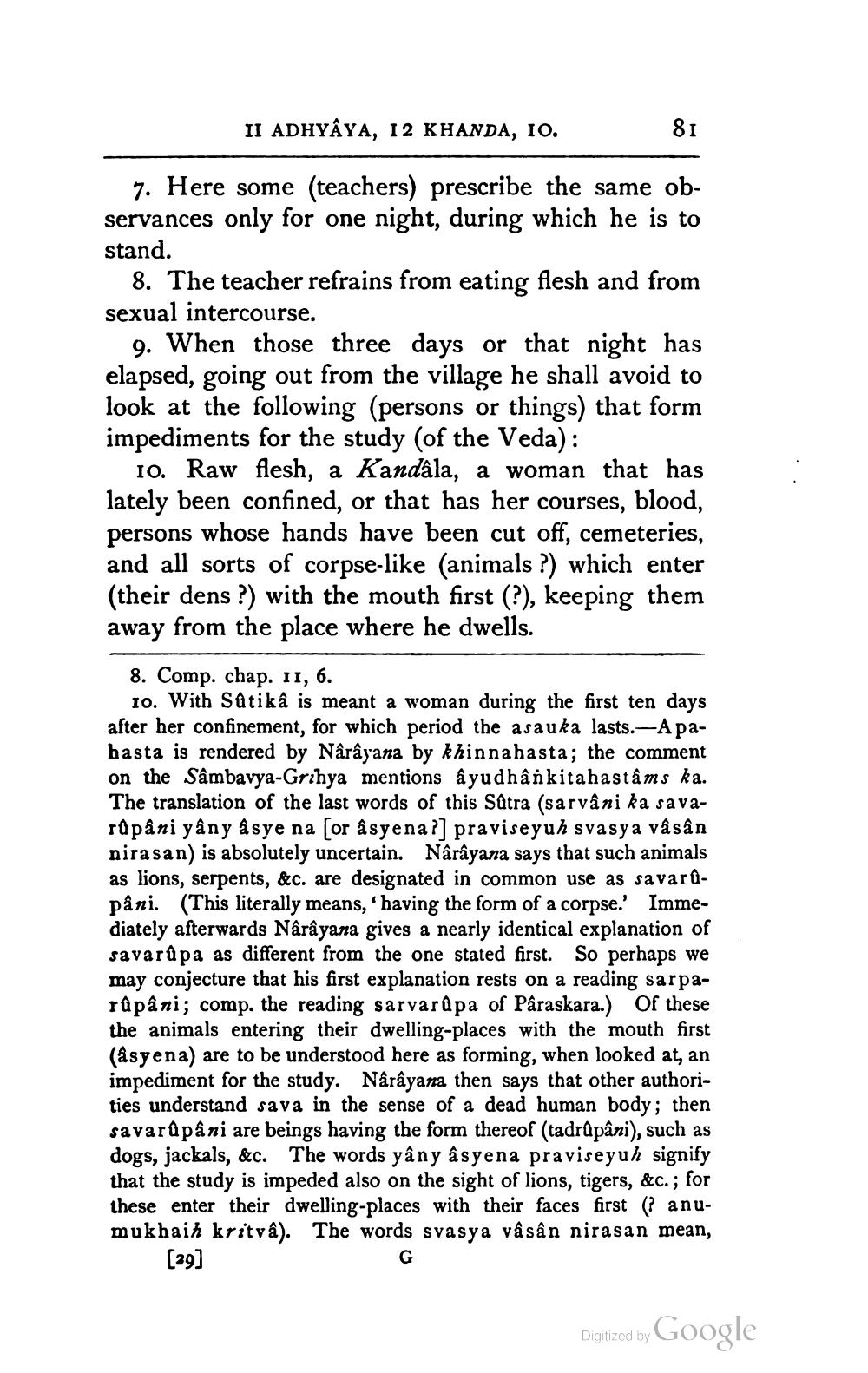________________
II ADHYAYA, 12 KHANDA, 10.
81
7. Here some (teachers) prescribe the same observances only for one night, during which he is to stand.
8. The teacher refrains from eating flesh and from sexual intercourse.
9. When those three days or that night has elapsed, going out from the village he shall avoid to look at the following (persons or things) that form impediments for the study (of the Veda):
10. Raw flesh, a Kandala, a woman that has lately been confined, or that has her courses, blood, persons whose hands have been cut off, cemeteries, and all sorts of corpse-like (animals ?) which enter (their dens ?) with the mouth first (?), keeping them away from the place where he dwells.
8. Comp. chap. 11, 6.
10. With Satikâ is meant a woman during the first ten days after her confinement, for which period the asauka lasts.- A pahasta is rendered by Narayana by khinnahasta; the comment on the Sâmbavya-Grihya mentions ayudhâńkitahastâms ka. The translation of the last words of this Satra (sarvâni ka savarûpâni yâny â sye na cor å syena?] praviseyuh svasya vâsân nirasan) is absolutely uncertain. Narayana says that such animals as lions, serpents, &c. are designated in common use as savarûpåni. (This literally means,'having the form of a corpse. Immediately afterwards Nârâyana gives a nearly identical explanation of savarûpa as different from the one stated first. So perhaps we may conjecture that his first explanation rests on a reading sarparûpâni; comp. the reading sarvarûpa of Paraskara.) Of these the animals entering their dwelling-places with the mouth first (asyena) are to be understood here as forming, when looked at, an impediment for the study. Narayana then says that other authorities understand sava in the sense of a dead human body; then savarů pâni are beings having the form thereof (tadrůpâni), such as dogs, jackals, &c. The words yâny âsyena praviseyuh signify that the study is impeded also on the sight of lions, tigers, &c.; for these enter their dwelling-places with their faces first ? anumukhaih kritva). The words svasya vâsân nirasan mean,
[29]
Digitized by Google




